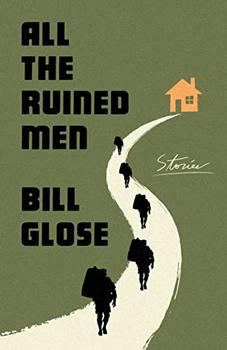Summary | Excerpt | Reviews | Beyond the book | Read-Alikes | Genres & Themes | Author Bio

From the front lines of the battle against Islamic fundamentalism, a searing, unforgettable book that captures the human essence of the greatest conflict of our time.
Through the eyes of Dexter Filkins, the prizewinning New York Times correspondent whose work was hailed by David Halberstam as “reporting of the highest quality imaginable,” we witness the remarkable chain of events that began with the rise of the Taliban in the 1990s, continued with the attacks of 9/11, and moved on to the wars in Afghanistan and Iraq.
Filkins’s narrative moves across a vast and various landscape of amazing characters and astonishing scenes: deserts, mountains, and streets of carnage; a public amputation performed by Taliban; children frolicking in minefields; skies streaked white by the contrails of B-52s; a night’s sleep in the rubble of Ground Zero.
We embark on a foot patrol through the shadowy streets of Ramadi, venture into a torture chamber run by Saddam Hussein. We go into the homes of suicide bombers and into street-to-street fighting with a battalion of marines. We meet Iraqi insurgents, an American captain who loses a quarter of his men in eight days, and a young soldier from Georgia on a rooftop at midnight reminiscing about his girlfriend back home. A car bomb explodes, bullets fly, and a mother cradles her blinded son.
Like no other book, The Forever War allows us a visceral understanding of today’s battlefields and of the experiences of the people on the ground, warriors and innocents alike. It is a brilliant, fearless work, not just about America’s wars after 9/11, but ultimately about the nature of war itself.
For anyone who despairs, as I have, of ever understanding the nations and events which orbit around the date September 11, 2001, The Forever War is part antidote, part exacerbation. As in the rest of life, the more we learn, the less we really know. Yet, this is the great value of the book. Filkins shows us that black and white ideologies – political, moral or otherwise – may be easy to stand by in our comfortable, peaceful world, but they become much harder to proclaim from the other side of the world, in the grey heart of war...continued
Full Review
 (601 words)
(601 words)
(Reviewed by Stacey Brownlie).
Iraq and Afghanistan are countries with deep histories and multiple ethnic
and religious citizen groups.
The geographical area that today is
Iraq is regarded by historians as the site of some of the earliest human
civilizations, including the Sumerians (who lived between the Tigris and
Euphrates rivers in
Mesopotamia,
a Greek word meaning land between the two rivers).
The division between the Shia and Sunni elements of Islam began sometime in the
late 600s after Arab tribes had taken control of the area from Iranian rulers.
After an approximately 500 year Arab dynasty and intervening conflicts with
Turkish warriors, the land that is now Iraq became part of the Ottoman Empire
in the 1600s and remained so until ...

If you liked The Forever War, try these:

by Rod Nordland
Published 2025
A legendary New York Times war correspondent delivers his unforgettable final dispatch: a deeply moving meditation on life inspired by his sudden battle with terminal brain cancer.

by Bill Glose
Published 2022
For readers of Phil Klay, Kevin Powers, and Tim O'Brien: Dramatic, powerful, authentic short stories of soldiers fighting a "forever war," in combat and back home.